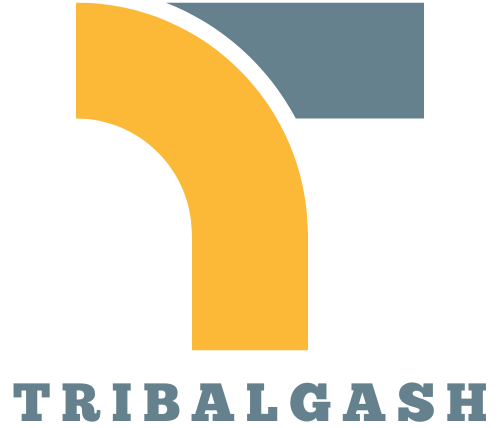The modern workplace is evolving at an unprecedented pace, driven by technological advancements and shifting employee expectations. Companies are no longer just places of employment; they’ve become dynamic environments that prioritize flexibility, collaboration, and well-being. As businesses adapt to these changes, understanding emerging workplace trends becomes essential for staying competitive.
From remote work and hybrid models to a focus on mental health and diversity, these trends are reshaping how organizations operate. Employers are recognizing the importance of fostering a culture that attracts and retains top talent. By keeping an eye on these developments, businesses can create an engaging and productive atmosphere that meets the needs of a diverse workforce.
Table of Contents
ToggleOverview Of Workplace Trends
Workplace trends reflect the changing dynamics of employment and organizational culture. Remote work opportunities allow employees to operate from various locations, enhancing work-life balance. Hybrid work models combine in-office and remote work, providing flexibility and accommodating individual preferences.
Mental health initiatives gain traction, as employers recognize the impact of well-being on productivity. Programs promoting stress management, counseling, and wellness activities are increasingly integrated into workplace environments.
Diversity and inclusion stand central in shaping workplace culture. Organizations prioritize varied backgrounds, experiences, and perspectives, fostering innovation and creativity. Companies implementing comprehensive diversity strategies benefit from enhanced employee engagement and retention.
Technology continues to transform workplaces. Digital tools streamline communication, enhance collaboration, and support project management. Companies adopting advanced systems benefit from improved efficiency and employee satisfaction.
Sustainability trends also influence organizational practices. Employers embrace eco-friendly initiatives, reducing their environmental footprint through green policies and practices. Employees express a preference for workplaces committed to sustainable development.
These trends highlight the necessity for organizations to adapt and evolve, ensuring continued attractiveness and relevance in the job market.
Remote Work Adaptations

Remote work has transformed workplace dynamics, necessitating new approaches to productivity and scheduling. Organizations are leveraging flexible work structures to accommodate employee needs and enhance overall performance.
Rise Of Flexible Schedules
Flexible schedules have gained popularity among employees, facilitating a better balance between personal and professional responsibilities. Organizations accommodate varied work hours, allowing employees to adjust their schedules based on peak productivity times and personal commitments. Companies that offer these flexible arrangements often see increased job satisfaction, leading to higher retention rates. According to a 2023 survey by FlexJobs, 80% of respondents cited flexible work hours as a critical factor in job selection.
Impact On Employee Productivity
Remote work and flexible schedules positively impact employee productivity. Research from Stanford University found that remote workers exhibit a productivity increase of up to 13%, attributed to fewer distractions and more comfortable working conditions. Flexibility enables employees to design their workflows, which often results in improved focus and efficiency. Additionally, organizations that promote autonomy in work schedules generally experience reduced burnout and absenteeism, further enhancing overall productivity levels. A 2022 report by The Future of Work Institute indicated that companies implementing remote work policies reported a 20% increase in employee output.
Technology Integration
Technology integration continues to reshape the modern workplace, enhancing collaboration and productivity. Organizations increasingly adopt advanced tools and automate processes to align with evolving employee expectations.
Tools For Collaboration
Collaborative tools streamline communication and foster teamwork. Platforms like Slack, Microsoft Teams, and Zoom allow real-time messaging, video conferencing, and file sharing, facilitating interactions regardless of location. Features such as document co-editing enable multiple users to work concurrently, enhancing project efficiency. Research by Forbes indicates that companies utilizing collaborative tools see a 20% increase in team productivity, showcasing the importance of these technologies.
Automation And AI In The Workplace
Automation and artificial intelligence (AI) significantly impact operational efficiency. With tasks such as data entry, scheduling, and customer service being automated, employees can focus on higher-value activities. According to McKinsey, automation can improve productivity by up to 30% in specific sectors. AI-driven analytics tools enhance decision-making by providing insights derived from vast data sets. Adopting these technologies not only reduces operational costs but also enables teams to leverage their skills for innovation and strategic initiatives.
Focus On Employee Well-Being
Employee well-being stands as a priority in the modern workplace, shaped by a growing recognition of its impact on productivity and engagement. Organizations are adopting various strategies to address mental health and promote a healthier work-life balance.
Mental Health Initiatives
Mental health initiatives play a crucial role in supporting employees. Companies implement programs like counseling services, mental health days, and wellness workshops. Research indicates that organizations with mental health resources see a 25% increase in employee satisfaction. Regular workshops that teach stress management and resilience can foster a supportive environment. Employers also encourage open dialogue around mental health, reducing stigma and promoting a culture of care. These efforts lead to improved morale and decreased turnover, positioning companies as desirable places to work.
Work-Life Balance Strategies
Work-life balance strategies are integral to enhancing employee well-being. Flexible scheduling, remote work options, and wellness programs contribute to a healthier work environment. Studies show that flexible work arrangements can increase job satisfaction by 20%. Organizations often provide resources such as time management workshops and mindfulness sessions, enabling employees to create boundaries between work and personal life. This balance not only boosts productivity but also improves overall health and happiness, reinforcing an organization’s commitment to its workforce.
Diversity And Inclusion Efforts
Diversity and inclusion play crucial roles in modern workplaces, driving innovation and enhancing employee satisfaction. Organizations recognize that fostering a diverse environment attracts unique perspectives and ideas.
Importance Of Diverse Teams
Diverse teams contribute significantly to organizational success. Research shows that companies with diverse workforces outperform their competitors by 35% in terms of profitability. Varied backgrounds enhance creativity, leading to better problem-solving and decision-making. Teams composed of individuals from different cultures, genders, and experiences are more adept at understanding diverse customer needs. Additionally, inclusive workplaces foster higher employee engagement and retention rates, as individuals feel valued and respected. Employee satisfaction increases by 20% in organizations that prioritize diversity.
Programs For Inclusion
Organizations implement various programs to promote inclusion effectively. Employee resource groups (ERGs) encourage participation and connect individuals with similar backgrounds. Mentorship programs facilitate professional development and support career advancement for underrepresented groups. Training programs on unconscious bias raise awareness and promote equitable treatment, contributing to a more harmonious workplace culture. Companies often measure the effectiveness of these initiatives through employee surveys that show significant improvements in inclusivity perception. Furthermore, organizations adopting flexible work arrangements can cater to employees’ diverse needs, creating an inclusive atmosphere for all.
The landscape of the workplace is transforming rapidly as organizations adapt to new trends. Embracing flexibility and prioritizing employee well-being are key to attracting and retaining talent. Companies that invest in mental health initiatives and foster a diverse culture will likely see enhanced productivity and innovation.
As technology continues to evolve, leveraging digital tools will be essential for effective collaboration. By aligning workplace practices with employee expectations, organizations can create an engaging environment that not only meets the needs of their workforce but also drives success in an increasingly competitive market. The future of work is bright for those willing to adapt and innovate.









